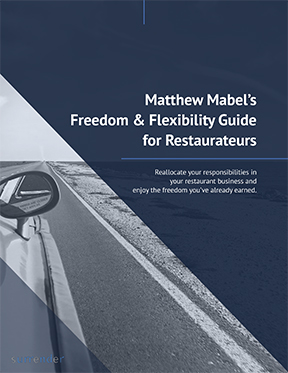 People hate airlines — or, at best, tolerate them. But, even with their product quality and customer service ratings plummeting, their profits are at record levels. That’s sustainable in the airline business, which is essentially closed to competition, but would be catastrophic in the restaurant business. Just ask the casual dining chains.
People hate airlines — or, at best, tolerate them. But, even with their product quality and customer service ratings plummeting, their profits are at record levels. That’s sustainable in the airline business, which is essentially closed to competition, but would be catastrophic in the restaurant business. Just ask the casual dining chains.
A recent New York Times story, “Route to Air Travel Discomfort Starts on Wall Street,” identified a connection between low airline passenger customer satisfaction and the fact that airline executives are rewarded solely on financial targets due to Wall Street’s profit demands. It explained how the horror show of the United passenger being dragged off the overbooked plane was an example of this.
Why Your Bonus Plan Must Connect to Your Guests
That reminded me: The bonus plan at your successful multi-unit independent restaurant company may work against you. I often hear people advocate bonus plans keying solely off key costs, restaurant-level profit, or even EBITDA. These are plans that work against the true goals of the organizations espousing them.
Sure, healthy economic indicators let restaurateurs develop better experiences for guests while building their net worth. But I have never heard a guest say, “That was a great meal, and they run a great food cost, but they have too many people on the clock.” Instead, guests talk about their experiences and use that evaluation to decide whether and how often to return, tell their friends, or post on social media.
Balance the Objective and the Subjective
The best independent restaurant companies make a connection between the guest and everything they do. That’s why I always recommend a bonus plan for your multi-unit and unit-level managers that includes “soft” criteria many people consider subjective. Sometimes, my clients push back on that — not knowing how to prove employee morale is high, that their brand is properly represented, or that their guests’ experience is outstanding. But the best restaurateurs do know these things. They are essential to sustained success.
Is your bonus plan measuring what is really important and rewarding your people for above-average performance in those areas? All my research on this topic points to these things you can do.
Four Keys to Developing Smart Bonus Plans:
- Review your bonus plan and evaluate how it maximizes guest experience.
- Determine how to re-balance it so it serves both your financial needs and your true lifeblood: happy guests.
- Roll out a new bonus plan including subjective criteria and making sure it pays out in the first quarter so your people believe in it.
- Re-evaluate every six months and pivot it to what is important then in your operations.

